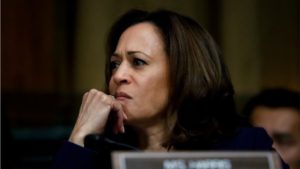By Jim Ellis
 Jan. 27, 2020 — Our final installment pertaining to the in-cycle Senate races covers the contests with primaries from mid-August through September:
Jan. 27, 2020 — Our final installment pertaining to the in-cycle Senate races covers the contests with primaries from mid-August through September:
AUGUST 6
Tennessee: Sen. Lamar Alexander (R) is retiring and the Tennessee open Senate seat has generated little in the way of political competition. Republican leaders, including President Trump, have joined together in support of former US Ambassador to Japan, Bill Hagerty, and he is a heavy favorite to win the party nomination and the general election. Nashville surgeon Manny Sethi is challenging Hagerty in the Republican primary, but him topping the former ambassador for the party nomination would be a major upset.
Dr. Sethi does have the wherewithal to compete, however. Through September, he loaned his campaign over $1.5 million in addition to raising almost $900,000. For the fourth quarter, Hagerty is going to report over $1.5 million raised with $3 million in the bank.
Democrats have virtually conceded the general election, largely as a response to then-Rep. Marsha Blackburn (R) defeating the person they believed was their best possible Democratic candidate in the last election, the state’s former two-term governor, Phil Bredesen. Blackburn’s strong 55-44 percent victory margin against the best they have has clearly dissuaded potential Democratic candidates who may have considered entering this year’s open contest.
Of the three who look to file on April 2, attorney and Iraq War veteran James Mackler, who exited the 2018 Senate race at the party leadership’s behest, is now their candidate of choice but he appears to be a sacrificial lamb at this point.
AUGUST 11
Minnesota: Then-Lt. Gov. Tina Smith (D) was appointed to the Senate in 2018 when then-Sen. Al Franken (D) resigned in disgrace over a sexual harassment scandal. Smith won the subsequent special election, 53-42 percent, over state Sen. Karin Housley (R-St. Mary’s County). She now stands for a full term and will likely draw former one-term US representative and radio talk show host Jason Lewis (R).
The former congressman is capable of running a credible campaign, and should the presidential race again get close in Minnesota as it did in the last election with Hillary Clinton carrying the state by less than two percentage points, the Senate race could conceivably become close. In any event, Sen. Smith is certainly favored to win again, but the campaign bears watching in case developments begin to break the Republicans’ way.

 Jan. 3, 2020 — The Census Bureau just released its new population growth estimates for the 12-month period between July 1, 2018 and July 1, 2019. Their data allows us to assess just which states will likely gain and lose congressional districts in 2020 reapportionment, both in terms of the real numbers just presented and for projecting the final count once the decade’s final-year patterns are calculated and the census is actually conducted.
Jan. 3, 2020 — The Census Bureau just released its new population growth estimates for the 12-month period between July 1, 2018 and July 1, 2019. Their data allows us to assess just which states will likely gain and lose congressional districts in 2020 reapportionment, both in terms of the real numbers just presented and for projecting the final count once the decade’s final-year patterns are calculated and the census is actually conducted.



 March 26, 2019 — The second of our three-part Senate review covers the races alphabetically from Louisiana through New Mexico:
March 26, 2019 — The second of our three-part Senate review covers the races alphabetically from Louisiana through New Mexico: